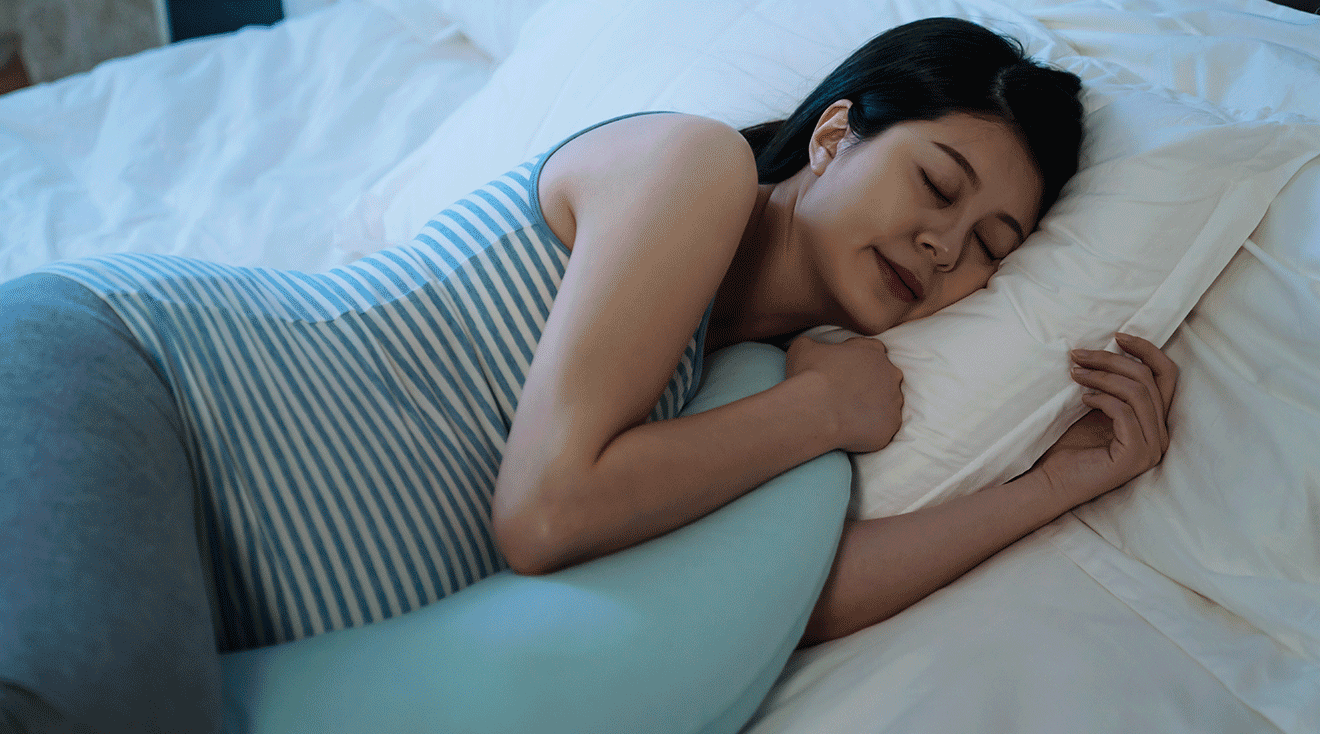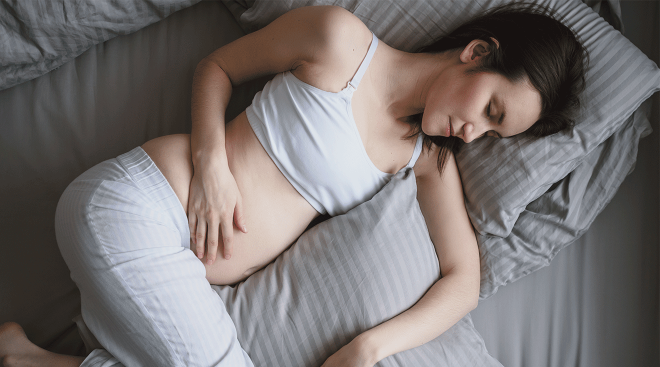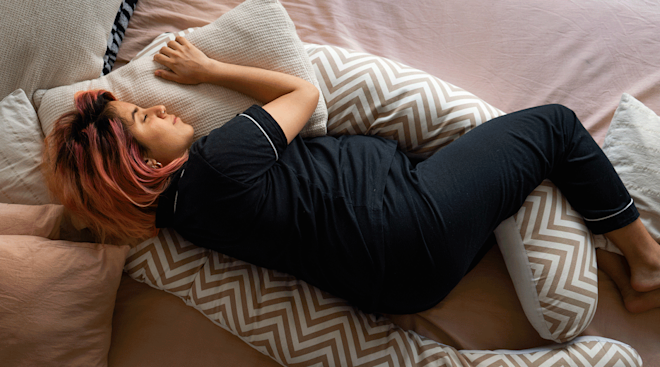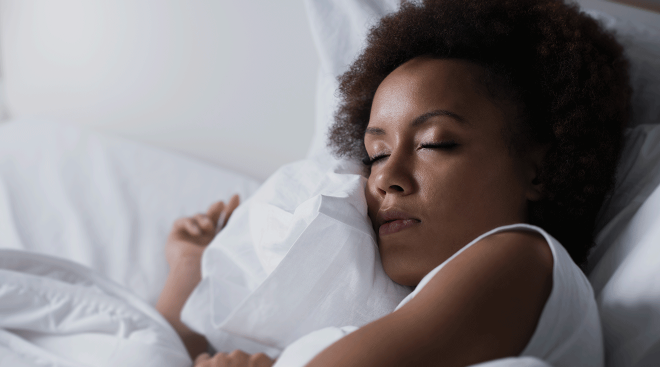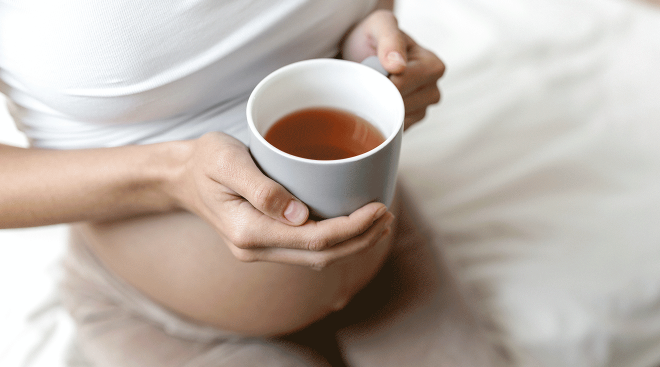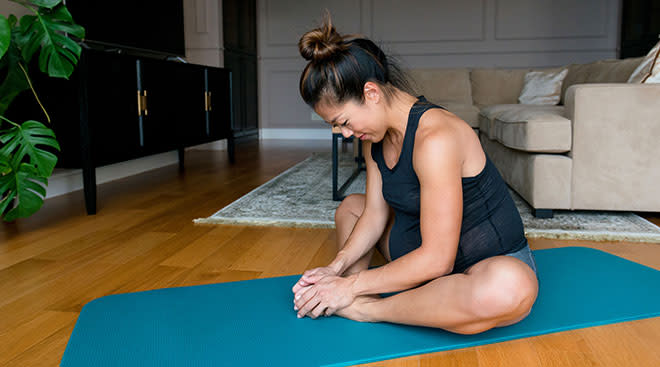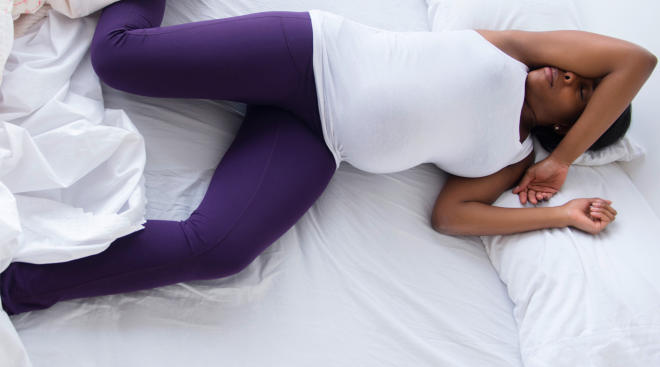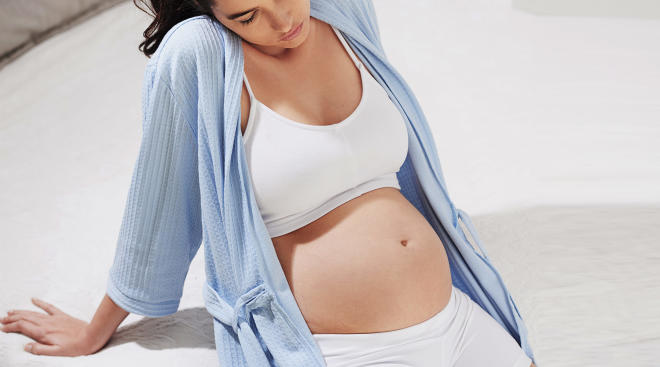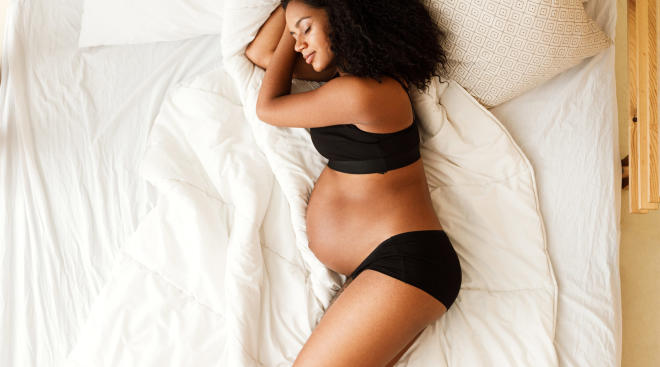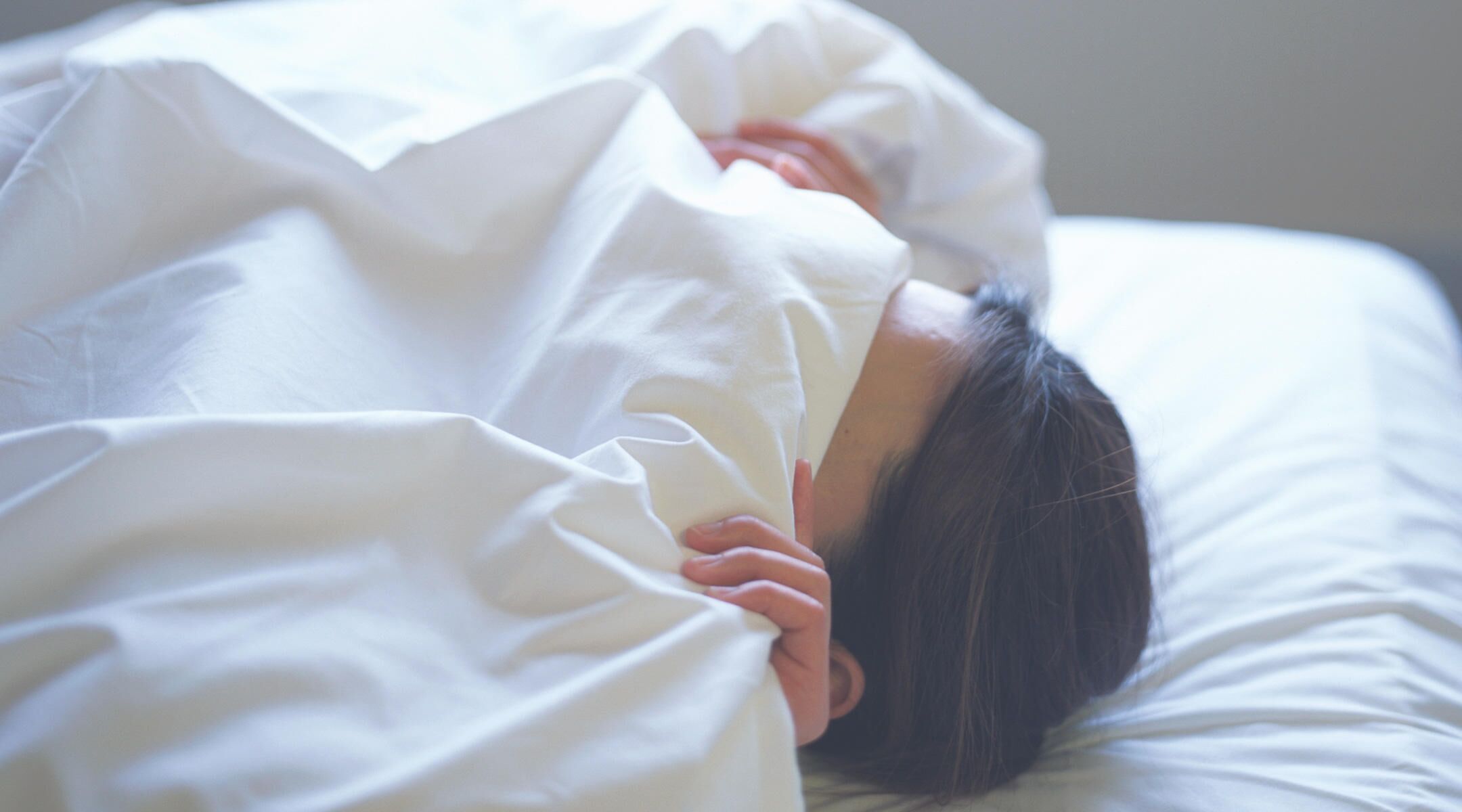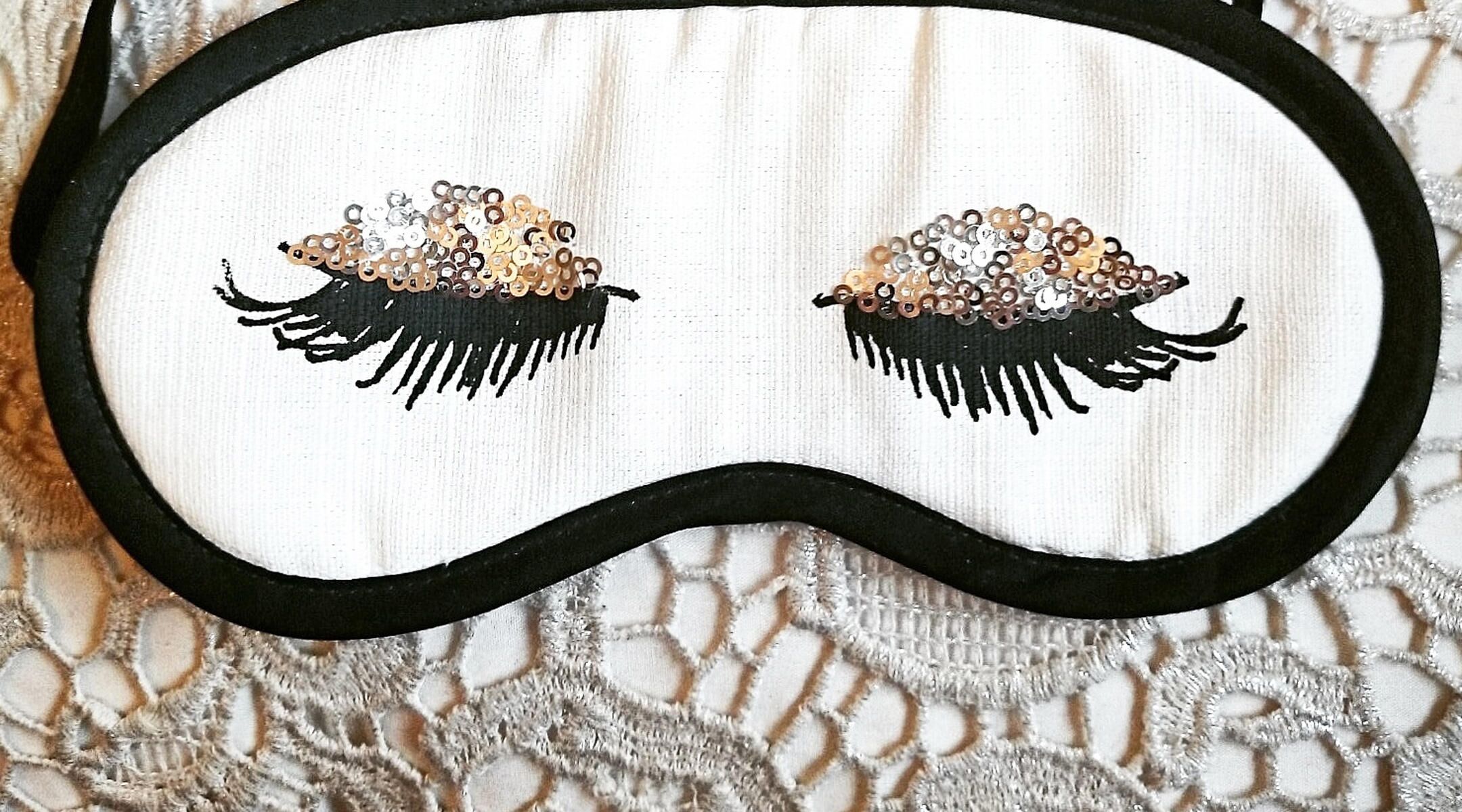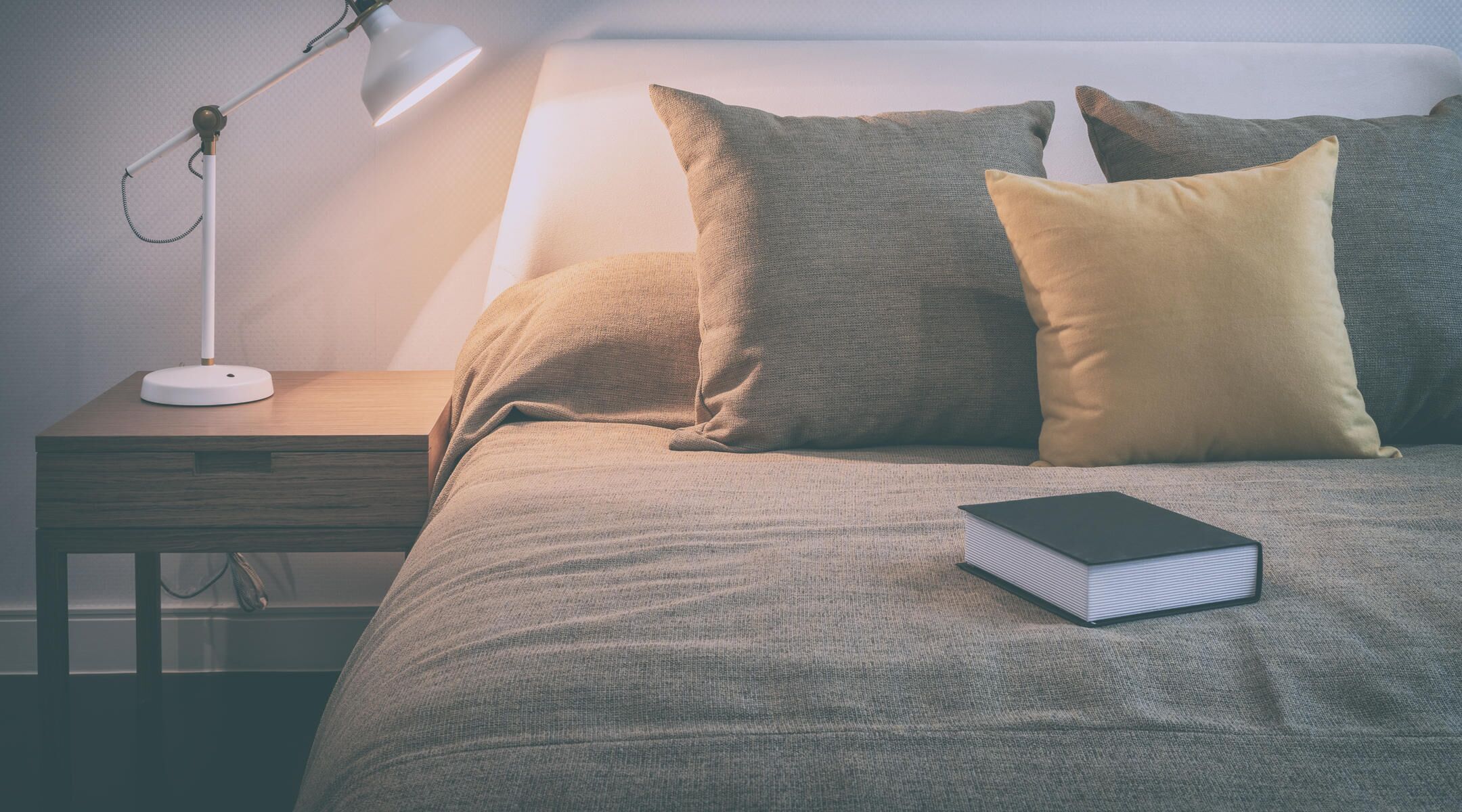What to Do About Sleep Apnea During Pregnancy
Getting plenty of rest is crucial during pregnancy, but unfortunately you might also notice more sleep disturbances while you’re expecting. If you’ve been snoring or you’re suddenly dealing with morning headaches, you could be dealing with sleep apnea during pregnancy.
While sleep apnea is a common condition outside of pregnancy, being an expectant mom raises your risk of developing it. Research has found that anywhere from 3 to 27 percent of pregnant women experience obstructive sleep apnea, depending on gestational age (it’s more common toward the third trimester) and method of diagnosis. So what’s the connection between sleep apnea and pregnancy, and what should you do if you suspect you have it? Ahead, experts explain risk factors, treatment and more.
Sleep apnea is a common condition in which your breathing stops and starts several times while you sleep, preventing your body from getting enough oxygen, the National Heart, Lung, and Blood Institute (NHLBI) explains.
Sleep apnea is classified into two categories: obstructive sleep apnea and central sleep apnea. Obstructive sleep apnea, the more common type, is when your upper airway becomes blocked several times while you sleep, reducing or completely stopping airflow, the NHLBI says. Central sleep apnea happens when your brain doesn’t send the signals you need to breathe, which can be caused by another health condition.
Obstructive sleep apnea “increases the carbon dioxide level in your blood, which makes your brain force you to wake up—briefly—to breathe,” says Jade Wu, PhD, a board-certified behavioral sleep medicine specialist and author of Hello Sleep: The Science and Art of Overcoming Insomnia without Medications. This can happen multiple times an hour or even as often as every two minutes or more during the night, she says. “Most people who have it don’t realize it because they don’t become fully awake each time they have an apnea,” Wu adds.
Obstructive sleep apnea “fragments sleep and reduces sleep quality,” says Christopher Winter, MD, a neurologist and sleep medicine physician with Charlottesville Neurology and Sleep Medicine and host of the Sleep Unplugged podcast.
While sleep apnea is fairly common outside of pregnancy, pregnancy can “absolutely” increase the risk of developing the condition, Winter says. The main reasons there’s a connection between sleep apnea and pregnancy are:
- Weight gain. The risk of developing obstructive sleep apnea increases as you gain weight in pregnancy, Winter says. In addition to your body weight increasing, your breast tissue may grow and add more weight to your chest, increasing the risk of sleep apnea, Wu says.
- Anatomical factors. “Just the presence of baby pushing up into the chest cavity can change breathing dynamics,” Winter says.
- Hormonal changes. Pregnancy hormones are no joke. “Estrogen increases can cause nasal congestion, which makes it harder to breathe,” Wu says.
A few factors can raise your risk of developing sleep apnea in pregnancy. “The biggest risk factor is having a history of sleep apnea or snoring before pregnancy,” Wu says.
Having obesity before you become pregnant also raises your risk, Winter says. Other risk factors, according to the NHLBI, include:
- A family history of obstructive sleep apnea
- Having heart or kidney failure
- Being older
- Having large tonsils and a thick neck
The biggest symptom of sleep apnea during pregnancy is snoring, Wu says. (Of course, most people don’t know they snore, so you might just hear about this from your partner or another person you live with.) But snoring doesn’t necessarily mean that you have obstructive sleep apnea, Wu says. There are a few other symptoms to have on your radar, according to Winter:
- Feeling especially tired during the day
- Waking up with a headache
- Atypical weight gain for pregnancy
- Peeing a lot
- Snoring or choking during your sleep
- Elevated blood pressure
- Fragmented sleep
There’s a range of treatment options when it comes to sleep apnea during pregnancy. Wu says doctors usually treat milder cases of obstructive sleep apnea with the following:
- Having you sleep on your side
- Suggesting using a wedge pillow to help keep your airway open when you sleep
- Suggesting using a dental device to help keep your jaw forward when you sleep
If you have moderate to severe sleep apnea, your doctor will likely recommend that you use a continuous positive airway pressure machine (CPAP), Winter says. This provides continuous air pressure throughout your airways while you sleep to keep them open and help you breathe, the NHLBI says.
Wu says that this form of therapy “has gotten so advanced that they can be quite comfortable and unobtrusive.” She adds, “I’ve had plenty of patients say they feel soothed by their CPAP and can’t settle down to sleep without it now.”
If you think you have symptoms of obstructive sleep apnea, Wu says it’s time to reach out to your provider. “One major problem with obstructive sleep apnea is that it can take a long time to get in to see a sleep specialist and to get the testing required to be diagnosed and treated,” she says.
There’s not a lot of data on whether obstructive sleep apnea in pregnancy will continue after baby’s born. “Risk for obstructive sleep apnea should go down after baby’s born, but it’s very possible that once you’ve had it, you continue to have elevated risk,” Wu says. “It’s important to keep follow-ups with your sleep doctor to continue to monitor symptoms.”
Please note: The Bump and the materials and information it contains are not intended to, and do not constitute, medical or other health advice or diagnosis and should not be used as such. You should always consult with a qualified physician or health professional about your specific circumstances.
Plus, more from The Bump:
Christopher Winter, MD, is a neurologist and sleep medicine physician with Charlottesville Neurology and Sleep Medicine and the host of the Sleep Unplugged podcast. He received his medical degree from Emory University School of Medicine.
Jade Wu, PhD, is a board-certified behavioral sleep medicine specialist and the author of Hello Sleep: The Science and Art of Overcoming Insomnia without Medications.
Cureus, Obstructive Sleep Apnea in Pregnancy: A Narrative Review, October 2022
National Heart, Lung, and Blood Institute, Sleep Apnea, March 2022
Mayo Clinic, Continuous Positive Airway Pressure (CPAP)
Learn how we ensure the accuracy of our content through our editorial and medical review process.
Navigate forward to interact with the calendar and select a date. Press the question mark key to get the keyboard shortcuts for changing dates.
































